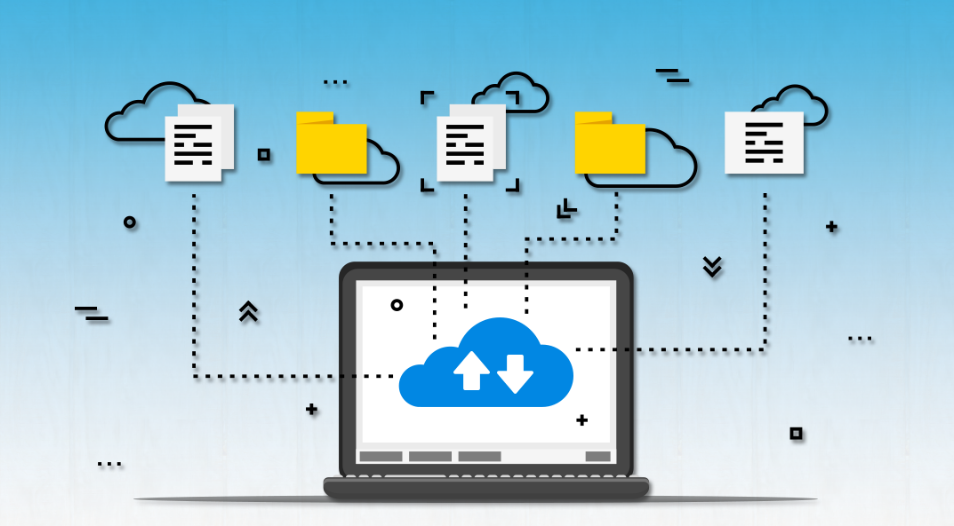Don’t Let Data Disappear! 5 Cloud Backup Strategies Every Business Needs

Data is the backbone of any modern business, and losing it can be catastrophic. Whether due to cyberattacks, system failures, or accidental deletions, data loss can cripple operations and lead to significant financial losses. Implementing a robust cloud backup for business strategy is essential to ensure data security, accessibility, and business continuity.
Here are five key cloud backup strategies every business should adopt to stay protected.
1. Automated and Scheduled Backups – Never Lose a File Again
Relying on manual backups is risky—human error is inevitable. An automated cloud backup solution ensures that your data is regularly and securely backed up without requiring constant oversight.
- How to Implement Automated Backups:
- Use a Trusted Backup Service: A solution like Polarbackup automates the backup process, ensuring that your files are continuously protected. (Learn more)
- Customize Your Backup Schedule: Determine the best backup frequency for your business—hourly, daily, or weekly—to prevent data loss from unexpected failures.
- Monitor Backup Status: Regularly check backup logs and reports to confirm that your data is being saved correctly.
By implementing an automated system, businesses can ensure their most critical files are always safe and up to date.
2. Robust Encryption Protocols – Keep Data Safe from Cyber Threats
In an era where cyberattacks are increasing, protecting data from unauthorized access is crucial. Encryption ensures that even if data is intercepted, it remains unreadable to hackers.
- Best Encryption Practices for Secure Backups:
- End-to-End Encryption: Before your data even leaves your local system, it should be encrypted using industry-leading standards like AES-256 encryption, which Polarbackup provides. (Learn more)
- Secure Transfer Methods: Always use SSL/TLS encryption to protect data during transmission.
- Private Encryption Keys: Keep control of your encryption keys rather than relying on third parties. This ensures that only authorized personnel can decrypt your files.
A strong encryption strategy guarantees that even if data is stolen or intercepted, it remains useless to unauthorized users.
3. Hybrid Backup Solutions – Get the Best of Both Worlds
A hybrid cloud backup strategy combines local storage and cloud backups, offering the best of both worlds. This approach ensures that businesses have fast access to their most critical files while keeping a secure copy offsite.
- Why Use a Hybrid Backup Approach?
- Faster Data Recovery: Local backups allow for quicker file restoration, reducing downtime.
- Increased Redundancy: Keeping copies of data both on-premises and in the cloud ensures business continuity in case of disasters.
- Cost-Effective Storage Management: Frequently accessed files can remain on local storage, while older, less-used files are archived in the cloud.
Polarbackup’s Hybrid+ feature allows businesses to store a local copy of their backup while keeping a secure version in the cloud. This enhances data protection while ensuring quick access when needed.
4. Data Deduplication – Optimize Storage and Reduce Costs
Data deduplication is an essential strategy for businesses that deal with large volumes of data. It eliminates redundant copies, optimizing storage usage and reducing operational costs.
- Benefits of Data Deduplication in Cloud Backup:
- Saves Storage Space: Eliminates duplicate files, ensuring only unique data is stored.
- Reduces Backup Time: Less data means faster backups and lower bandwidth consumption.
- Improves Recovery Speed: With fewer redundant copies, restoring data is more efficient.
Using advanced cloud backup for business solutions with built-in deduplication ensures that your storage is used efficiently without compromising data integrity.
5. Regular Backup Testing – Ensure Your Data is Recoverable
Having a backup is useless if it doesn’t work when you need it. Many businesses neglect to test their backup systems, only realizing there’s a problem when it’s too late.
- Steps for Effective Backup Testing:
- Perform Scheduled Recovery Tests: Regularly restore data to ensure backups are functional and complete.
- Verify Backup Integrity: Compare restored files with originals to detect any corruption or missing data.
- Update Your Recovery Plan: If issues are found during testing, adjust your backup strategy accordingly.
Regular testing helps businesses avoid surprises when trying to recover critical files, ensuring that cloud backups function as intended when disaster strikes.
Final Thoughts
Data loss is not a matter of “if” but “when.” A well-structured cloud backup strategy ensures that your business remains operational even in the face of cyber threats, hardware failures, or accidental deletions.
By implementing automated backups, encryption protocols, hybrid solutions, data deduplication, and regular testing, businesses can secure their most valuable asset—their data.
With a reliable solution like Polarbackup, companies can protect their information while optimizing storage costs and improving recovery times. Don’t wait until data loss happens—take action today!
